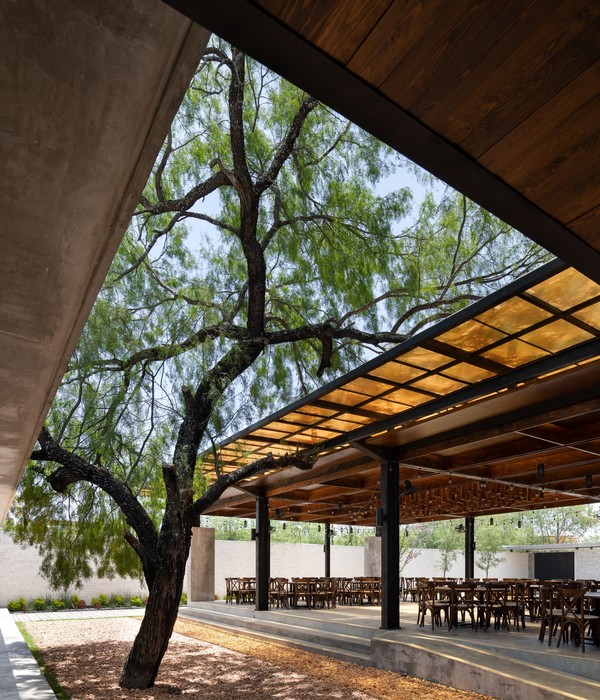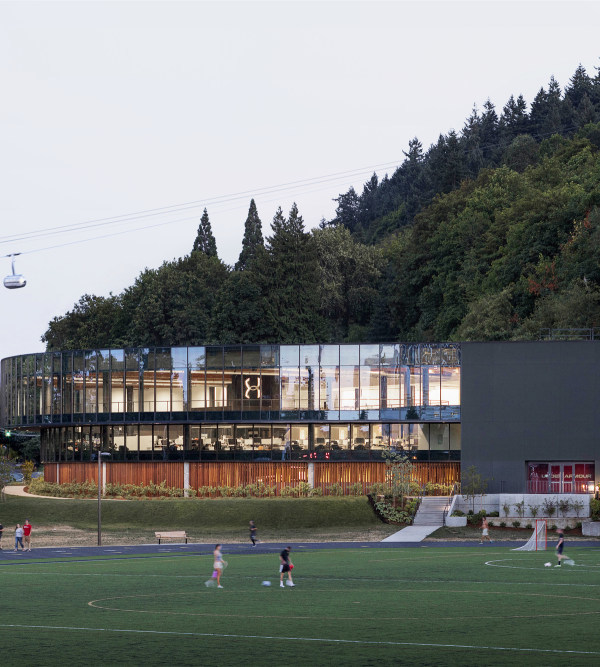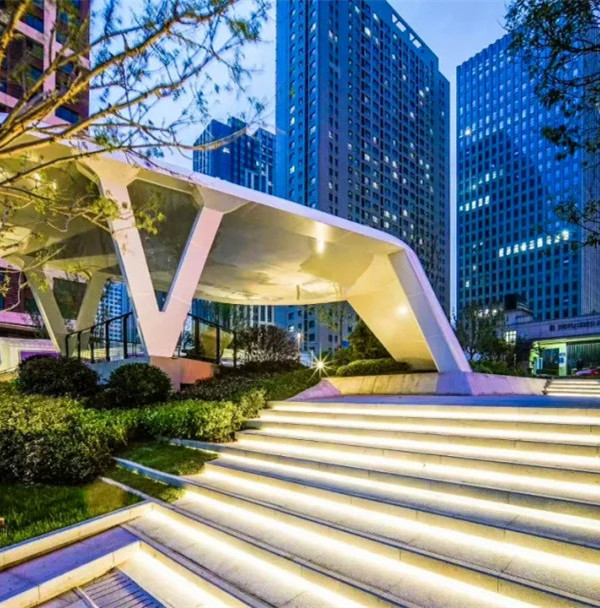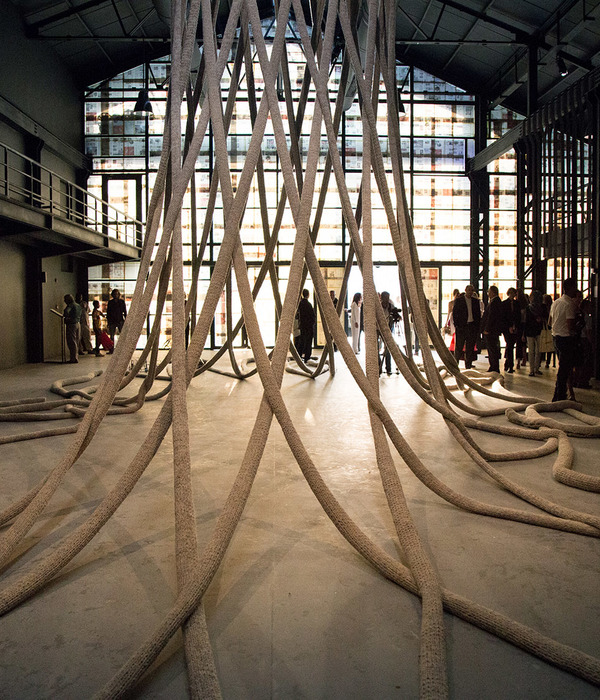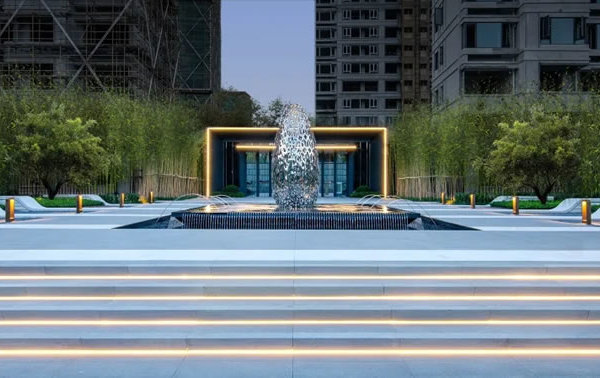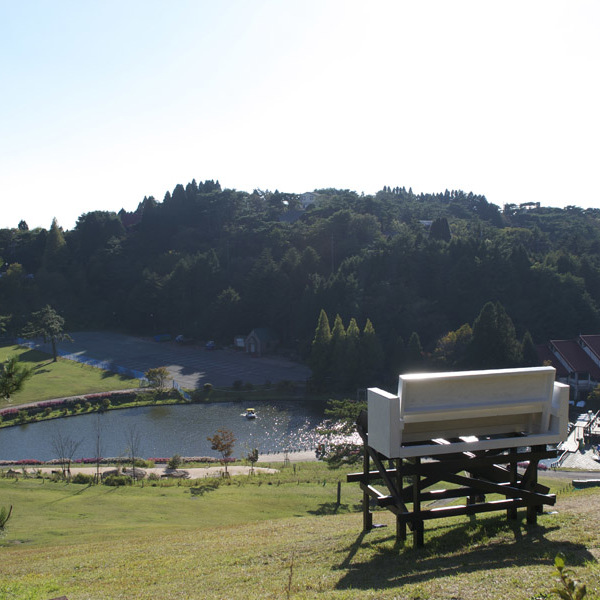This is a dream installation for children in Yingchun Village, Junle Town, Pengzhou City, Sichuan Province. The Grand Sanhe Courtyard is one of the few local multi-family settlements,which is full of beautiful woods. Local people call these woods "Lin pan", which means "winding woods".
There are many charming courtyards connected with winding and dense paths among the woods which look like a system of net. As any other village, the children here are really innocent and romantic. The smiles on their faces are especially infectious.
Woods, courtyards, path networks and children inspired designers. In this way, the concept of "NET" was extracted, and then used as the medium of the place bearing the dream of the woods. At the same time, the designers hoped to gather and connect each individual through the net installation which also could provide free release. The final design of the dream installation was a climbing net seemed like random hills,designers gave it the name “weaving dream”. It is not a specific set form, but provides children with unlimited imaginary space and exploration possibilities.
After the exploration of several woods, the design team placed the climbing net installation on the green grass across the river of The Grand Sanhe Courtyard. The climbing installation connects woods, broken walls, river ditches, courtyards and local infrastructure (a public toilets). Standing in the golden fields during the harvest season, it looks like a rolling golden hill.
In order to make sure that the original "form" of woods would not be damaged so much, the whole “weaving dream” was chose to build on the basis of the original site, so as to ensure that the installation and the preservation of trees and surrounding rural environment could form a good "relationship". The design team lifted the whole climbing net with the steel column structures as the main support instead of the original tree trunk, so that the trees could grow as before and the grass could grow underneath naturally.
The main design of the weaving dream consists of hill-like climbing nets with different slopes. Different climbing slopes provide the freedom of more choices for children of different ages, for both climb and rest. Meanwhile the designers also set up ball-obstacles in the process of climbing in order to simulate the the difficulties in a real mountain climbing.
On this basis, the designers added four auxiliary play methods to the climbing net: Jumping trampolines, ground crossings, mesh tunnels and rocking hammocks. Which have the goal of developing sensory integration including reflexes, motor balance, and the development of large and fine muscles through activities on the net such as climbing, jumping, grasping, and releasing. Of course, when it comes to games, kids are the real designers——under the premise of safety, the “weaving dream” is no different from an open installation, which can be "designed" by children themselves at any time.
In addition to the main part of the “weaving dream” installation, the design team also carried out the design and construction corresponding to the surrounding site to emphasize the overall scene and atmosphere. The "net" element was still used as main material which extended to the periphery tree and the abandon earthen wall, in order to assure the highly continuity of all round interfaces.
Finally, the designers transformed the shape of the “weaving dream” into identification to form a matching logo design. The identification guide also used rope net to tie, so that it could form a perfect overall identification and echo with the "weaving dream" installation.
The completion of “weaving dream” installation coincided with the local harvest Guokui festival. Children of different ages flocked from all surrounding areas. They played happily on the “weaving dream”. Their innocent and bright smile, the laughter of spray general, are the most beautiful dream and moving note on this piece of “weaving dream” among the woods.
{{item.text_origin}}

